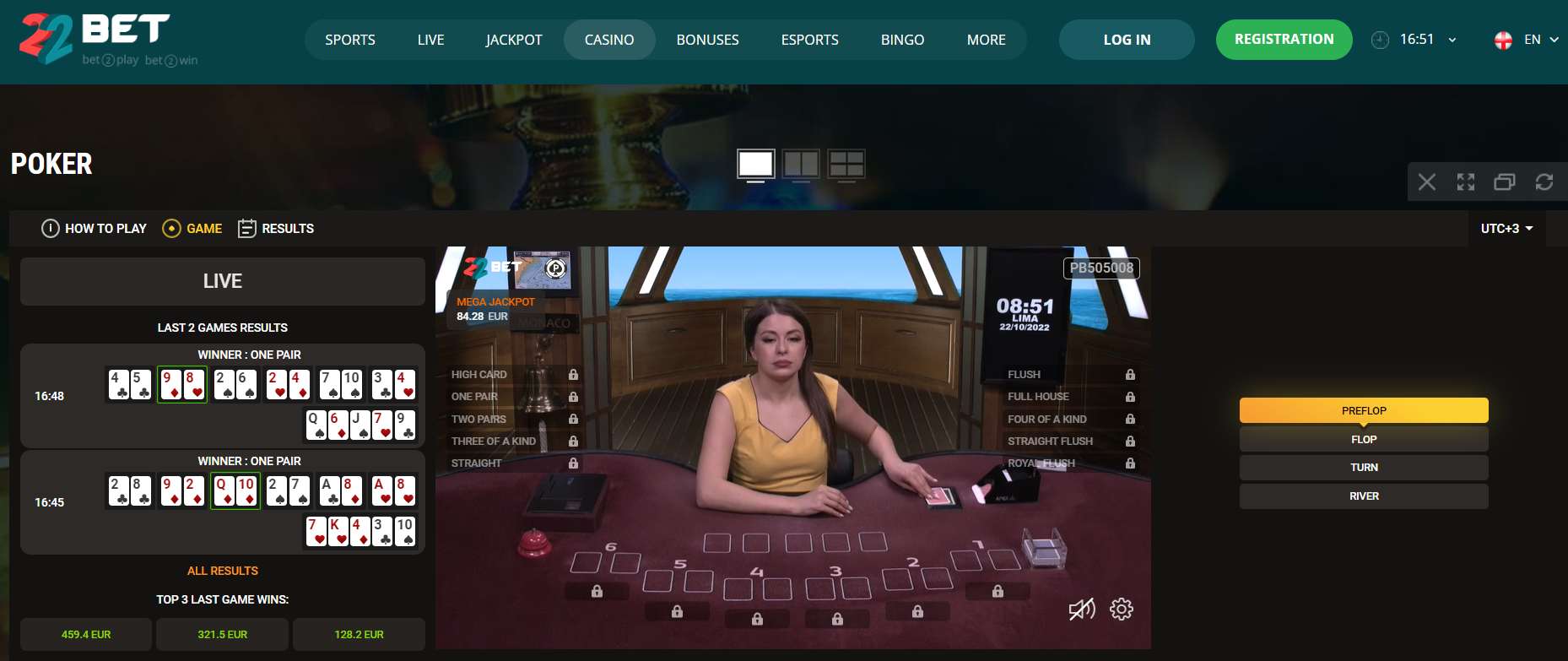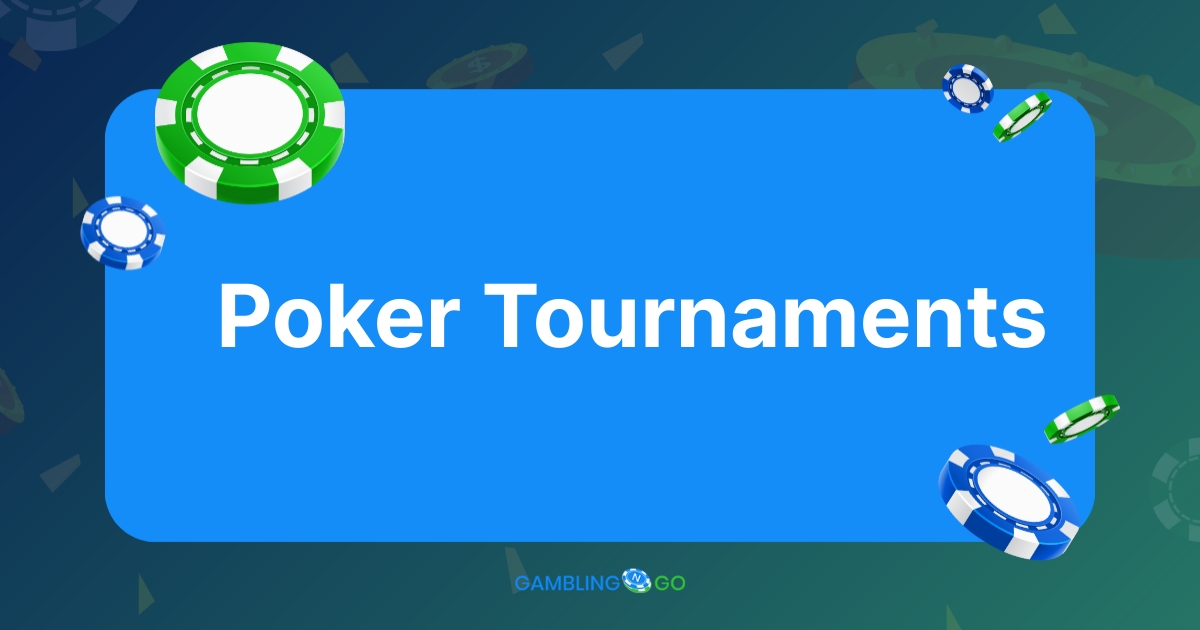Poker differs from other casino games because it requires the player’s skills. If you are involved in the subject, you have definitely heard of professionals making huge amounts of money on this type of gambling. However, you can meet people who believe that this game is too simple and can be compared with such titles as roulette, for instance. Here, we should say that some success in a player’s effort will come in handy. Indeed, poker combines skill and luck.
In this article, we are going to look closely at this game and at the factors affecting the outcome. We’ll consider the ways luck can impact poker. And we’ll discuss the tools, which a player should master if he wants to achieve the best possible result while avoiding bad luck.
 |
4.5 (130 ratings) |
Play now |
Quick Jump ⇣
What is Luck in Poker?
In general, the word “good luck” defines the conditions when a person gets something by chance without any effort or sometimes even against circumstances. Failure comes contrary to the supportive environment, affirmative approach, and lots of intense, vigorous activities when a human does what is right and honorable.
So, how can the above be applicable to poker?
How Does Luck Affect Poker?
If we speak about short-term winnings, luck does matter. In order to comprehend this statement, let’s recall the rules briefly.
Poker is based on hand rankings. Commonly, a standard deck of 52 cards is used. There are variants, but now we’ll try to remember the classical scheme. Cards in the deck are ranked with corresponding values.
Each player starts with a couple of so-called pocket cards (which are not seen by other participants). The hand is limited to 5 cards. During several betting rounds, the so-called community cards (viewed by everybody) are dealt with. The players take various standard actions to achieve the goal – to choose the right cards from the open ones, to add them to their pocket cards, and to build the highest possible hand.
Actually, the combination of values and suits is important, increasing winning chances.
The one with the highest ranked hand is a winner. Again, there are diverse titles with different rules and targets. However, the key objective is the same – a player should build a hand that meets the requirements. How can he manage to do it?
The bettor should be strong in math, have a good memory, and be able to focus attention on every card that is dealt. It is important not to miss the opportunities in terms of the fitting-for-purpose cards that get open on the board. So, a lot of factors should be considered.
When you know the number of cards in the deck, you can follow the process and assume what cards your opponents have. That helps you take the right action during betting rounds. And that is about your skills. However, you have no control over the deal itself. You do not know what cards you and the other players get initially and which ones are dealt during the rounds. And that is about your luck, which is equal to 90% here! Even if this is too much, it really matters a lot.
But just think of it: every player sitting around the poker table has the same luck, and here the skills change everything. The skilled players feel that they can challenge chance and reduce the randomness of the outcome.
But Good Fortune Will Eventually End
What do we mean when we say that short-term playing can depend mostly on luck? It is easy. When you are a beginner and start playing, you can lose a game and win the next one. A winning outcome under these circumstances looks like luck. Your loss can be the result of being unlucky too. However, when you lose, playing lots of sessions in a row, you should definitely think about your lack of skills.
You cannot lose at poker for a long time if you make the right decisions. You can even evaluate your progress. Just look at your winning and losing outcomes for the period.
When is Poker a Game of Luck, and When Is It Based on Skill?
So, if we say luck is the profit that you get thanks to properly dealt cards, then skill is the profit that you get thanks to your knowledge and abilities. Taken as a whole, the profit of a player depends on:
- How cards are dealt by the dealer to every player, not just you.
- How a player behaves during betting, what decisions he makes, and the reasoning behind his strategy.
- How opponents behave during a game and how skilled they are at increasing their winning chances.
As you see, not only your skills make a difference when you play poker. Good luck is also involved. However, you should not rely on it, and you should not give up hope with this title because you can master it and benefit from your skills.
 |
3.9 (131 ratings) |
Play now |
What natural gifts and learned skills will you need to become rich thanks to playing poker?
Why Poker Is a Skill Game
Let’s consider those aspects which require your skills.
The Game Has a Mathematical Nature
Poker is obviously about math. You are expected to calculate cards all the time in order to take the right action during betting. You can call or fold, raise or bet. Every choice has consequences. To guess combinations of cards, you can apply your understanding of simple mathematics or get engaged in complex things like the calculation of the binomial coefficient.
Anyway, it is recommended that you play in pots with higher winning chances compared with your pot odds. Continue following the advice for some time, and you will earn money. What are the pot odds? This is the ratio of the size of the pot that is in play at the current moment to the cost of the next move of a player. It allows for estimating the value of the call.
The Result Depends on Probabilities and Odds
You cannot calculate your luck precisely, but you can calculate the probability or odds using your skills in math. You should consider a number of cards and their values in order to know your chances.
If the deck of 52 cards is used, you can be sure that it includes four aces. The probability that you get an ace as the first card dealt is one out of thirteen (52/4=13). If you want to calculate pot odds, you should consider the combination of the size of your bet and the amount in the pot. This ratio will help you decide on your action: whether you should fold or call.
When you calculate and use the pot odds and probability, you reduce the random outcome. That is why the experts say that online poker has different chances of winning.
Skill Gaps Are Immediately Evident
Skills make the difference between a successful poker player and an amateur. Of course, your success also depends on how the cards fall, but your strategy and your ability to implement it in the best manner are the keys to winning.
In poker, you play with several other players. Find the weakest ones and benefit from their weaknesses. Here, there is no place for compassion and courtliness. Kill or be killed.
If you lack experience, be sure that other players will notice it. You will definitely make silly mistakes and lose your chances of making money. The other participants will try to make you off-hand or, on the contrary, invite you to call a large bet. If you are a strong player and meet an equally strong opponent, it is highly likely that it rests with luck to decide who is the winner in the game.
You Can Be Trained to Defeat the Majority of Players
Unlike other types of gambling, poker is not only about fun. Here you are expected to put effort into enhancing your skills. You must learn to forecast the outcome. So, you need time, patience, and determination. Step by step, you will get a comprehensive idea of the rules and build your strategy. To succeed, you should take the following steps:
- Start playing classical poker and try its variations, selecting the most profitable ones.
- Play with various opponents as often as you can to practice and polish your skills.
- When you’re at the table, study the game by taking each session seriously and analyzing the reasons for losses and wins.
- Remember bankroll management and do not place large bets until you feel that you are ready.
Strategies Evolve All the Time
Poker is a deep game with lots of variations in the outcome. In addition, there are various titles with peculiarities that add to the enjoyment and complexity. The players get smarter and develop new winning strategies. Thus, you will always play with someone who has an advantage.
It means that you should not rest on your oars and use a single strategy. Try to play better and meet the challenges. If you feel that you are ready, you can join some communities and take part in tournaments.
The Best Players Post Consistently Good Results
When you estimate your own skills, you can measure up against the world’s best players in the game. Learn more about their stories.
Do not believe some reviews where a player says something about random luck. The players who win huge prizes work hard to succeed. And that is another argument in favor of skills.
The outcome in poker more depends on the experience and abilities of a player than on chance.
 |
4.7 (152 ratings) |
Play now |
What Skills Are Important in Poker?
To sum up, we’d like to list the skills you should develop if you want to earn by playing poker:
- Gifts for math are a huge advantage. As we have mentioned before, you will just not be able to play if you are not able to calculate the odds and track cards (however, you should know that card counting is illegal).
- An understanding of psychology helps you use the weaknesses of opponents in your favor.
- Control over your own emotions is of high value, especially if you play at a land-based casino or play video poker. Developing a poker face will be needed. You should keep calm and have a sound mind. Do not show if you have an average-ranking hand, as you do not know what cards other players have.
- Interaction with players should be aimed at understanding what they have in mind. You can leave comments with the purpose of rattling them and getting rid of them.
- Informed choices and actions are vital. You should understand the reason for playing or folding.
As you see, there are so many things affecting the outcome. So, the skills of the players matter a lot. If you want to develop them, you should play poker continuously.
How to Improve Your Poker Skill?
What else can be done to become a successful poker player? Again, we have to emphasize that practice is vital. Do you want to be the best? Prove it!
Play as often as you can. However, participation in the event is not the only stipulation. You should focus on every action, analyze it, and learn from your mistakes. At the start, you’d better refuse to play at multi-table as there are lots of elements that will distract you.
You can find coaches. There are a lot of offers on the Web with various charges. Some guys take about $50 per hour, but it’s not the top level. Yes, poker coaching is quite expensive, but it helps you earn much more. It will fix all your weaknesses and tell you how to enhance your game.
Another way to get insider information and get trained in a short time frame is to attend an online poker course. The option is more affordable compared with a personal coach, but it is still efficient. There are even free products on YouTube. When all’s said and done, you may read our guides and get useful information.
Combine training with practice and be sure that success will not be far in coming.
Conclusion
We agree that it is a cause for regret that poker is not about luck alone. There can be rare random winnings, but without skills, you will not unlock the potential of the game and will not benefit from the opportunities it offers. It requires lots of knowledge and hard work at the table. You should play consistently to master the required skills.
You should not waste your time and rely on luck, even if it is still important. If you want to improve your poker game, you should think of tonnes of things, including mathematics, psychology, and bluffing. Do not forget to calculate the probability and odds, track cards, and keep calm under any circumstances. Just choose the best online poker site and practice! Finally, you’ll become a much better player in the long run and succeed!
FAQ
What is poker variance?
In brief, poker variance is a period of bad luck. It shows how much a player loses (or how much he wins, as on the reverse side of the medal). There is a belief that the ratio is based on luck. The concept can be compared with that of a flipped coin. The coin has two sides. It can fall tails-up or heads-up. There is no other outcome. Thus, the probability is 1 out of 2. If you flip a coin a hundred times, the probability of your winning is 50%, or 50 times. However, in reality, you can win 56 times, for instance. And that will be considered a positive variance. The negative variance is when you win less than the probability (48 times, for instance).
What makes poker a game of skill?
Poker allows a player to affect the outcome as he can track the cards, calculate combinations, impact other players, benefit from their weaknesses, and even bluff. All these skills contribute a lot to the achievement of goals and the earning of money. Thus, you should be skilled in math and psychology if you want to become a professional poker player. You should count the odds, determine expected values, read through the players at the table, and control your own emotions.
Is luck a myth in poker?
There is an element of chance in poker, but it does not mean that you should rely on it. The fortune is connected with card dealing. You cannot predict dealt cards and you cannot influence a dealer. Thus, you do not know the initial hands of every player. Top professional players can lose due to bad luck (when playing against equally skilled opponents).
What makes poker a game of chance?
The cards are dealt randomly in poker. This is the only thing that makes this game driven by chance to some extent. But the way that the situation will evolve depends on the players’ skills and their ability to benefit from what is happening.
How to mitigate bad luck with skills?
If we speak about luck, we agree that there is bad luck. You’ll reduce its impact when you get experience and develop your skills. If you want to get rich playing poker, you are expected to play a lot to practice and understand the rules deeper (however, you should avoid gambling addiction ). Also, you can benefit from poker coaching and online courses. When you play, you should balance pot odds with your winning chances and identify and target the weakest player at the table.















